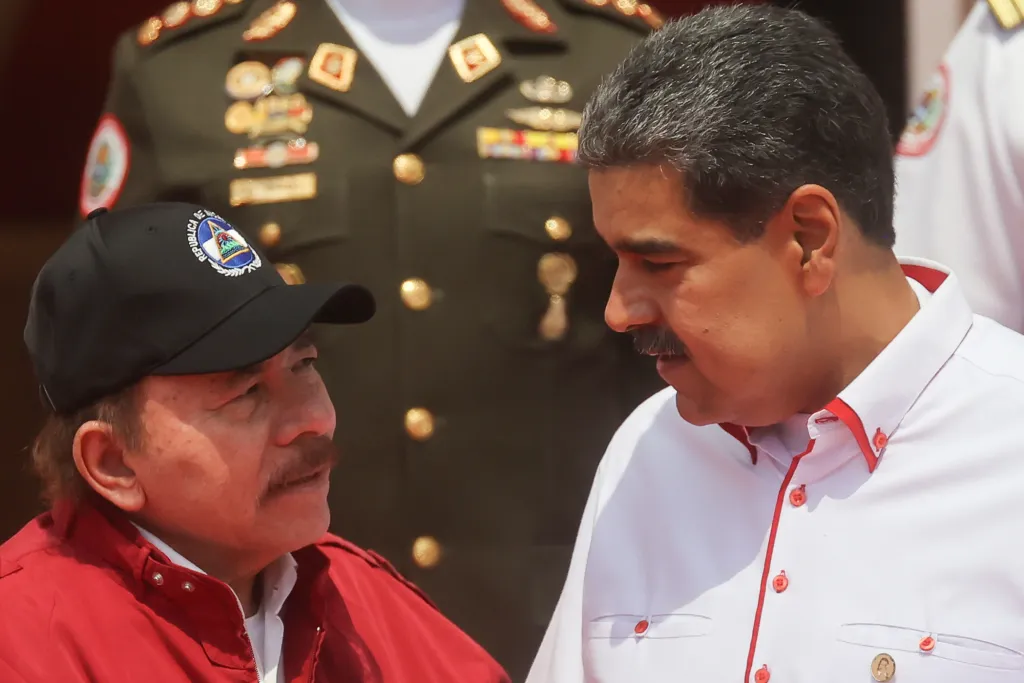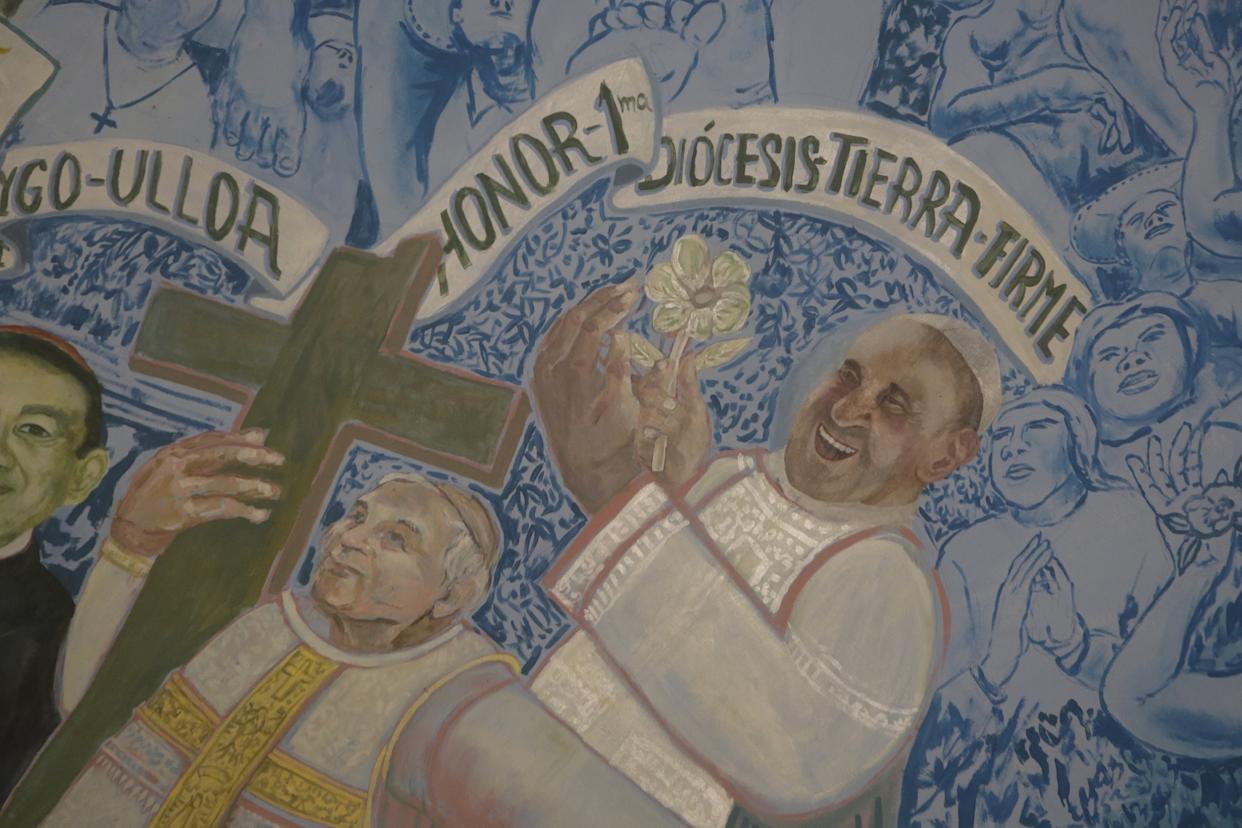International
How Latin America has reacted: from the rejection of Chile and Argentina waiting for Brazil and Mexico

After knowing the results announced by the National Electoral Council (CNE) of Venezuela on the presidential elections that, according to the entity, was won by President Nicolás Maduro, there have been various reactions in Latin America from the request for transparency of Chile and Argentina to the caution of Brazil and Mexico.
One of the first to react was the president of Chile, Gabriel Boric, who at first said that the results “are difficult to believe” and on Monday he claimed that it is necessary to deliver all the electoral records to both independent international observers and the opposition.
“As long as that is not done, we as a country are going to refrain from recognizing what the National Electoral Council has pointed out,” Boric said.
“I have stated, and I have also discussed it with the chancellor and with different people in Latin America and in the world, that the elections, and elections that generate as much expectation as this, have to be absolutely transparent and verifiable by international observers who are not dependent or supporters of the Government,” added the Chilean leader.
The president of Argentina, Javier Milei, described on Monday the results of this Sunday’s presidential elections in Venezuela as an “electoral scam” and ignored the announcement of the National Electoral Council (CNE) of that country, which gave Nicolás Maduro as the winner, results that the opposition denounced for irregular.
“Not even he believes the electoral scam that celebrates. Neither does the Argentine Republic,” the Argentine president wrote about Maduro on his profile on the social network X.
“We do not recognize fraud, we call on the international community to unite to restore the rule of law in Venezuela, and we remind the Venezuelan people that the doors of our homeland are open to every man who chooses to live in freedom,” added the publication of the ultraliberal politician.
“Condemn the electoral fraud perpetrated by the regime of dictator Nicolás Maduro in the Bolivarian Republic of Venezuela. Argentina demands total transparency in the counting of votes. We are not going to consolidate any results without the support of international observers; of course, that they are not puppets of the Chavista regime,” the presidential spokesman, Manuel Adorni, said earlier.
The Government of Brazil celebrated on Monday the “peaceful character” of the elections in Venezuela, but ratified that it will wait for all the results to pronounce on the victory attributed by the electoral authorities to Nicolás Maduro.
In an official statement, the Brazilian Ministry of Foreign Affairs “reaffirms” that “the principle of popular sovereignty must be observed through the impartial verification of the results” and adds that Brazil “waits, in that context,” the publication of all the data “detailed by a polling station.”
That last requirement, according to the statement, is “an indispensable step for the transparency, credibility and legitimacy of the result of the electoral lawsuit.”
In the same waiting line, the president of Mexico, Andrés Manuel López Obrador, spoke out, who said that he will recognize Maduro’s triumph, if Venezuela’s CNE “confirms the trend” after Sunday’s elections, although he asked to “wait for the count.”
“We are going to wait for the result, and when the count has been carried out, see what the legal process is and then we are going to pronounce, if the electoral authority confirms this trend, we are going to recognize the Government elected by the people of Venezuela,” López Obrador said in his morning conference.
The Mexican ruler assured that “they cannot ignore any result” of the CNE, which during the night announced that Maduro won with 51.2% of the votes compared to 44.2% by Edmundo González Urrutia of the opposition Democratic Unitary Platform (PUD) of Venezuela.
The president of Panama, José Raúl Mulino, announced that he “suspends” diplomatic relations and announces the withdrawal of his diplomatic corps in Venezuela “until a complete review of the minutes” of the votes is carried out after rejecting the results of the elections.
Mulino, who pointed out the “deterioration” during the last years of diplomatic relations between the two countries, said: “I make this decision out of respect for the history of Panama, the millions of Venezuelans who chose our homeland to live, and my democratic convictions, I cannot allow my silence to turn into complicity.”
“I believe, and I hope I am wrong, that the flow of Venezuelans will increase for obvious reasons and we have to take the appropriate decisions to safeguard their life and integrity,” Mulino said.
At the same time, the Government of Peru denounced the attempt of the Venezuelan authorities to “consolidate a fraud” and detailed that it remains “in active observation” in the face of the possible “migratory effects” of the announcement of the re-election of Nicolás Maduro.
The Ministry of Foreign Affairs said in a statement that, along with other competent authorities, it is “in a state of active observation in anticipation of migratory effects as a result of the seriousness of the course of Venezuelan electoral events.”
The president of Bolivia, Luis Arce, was one of the first leaders in the region to react and considered that Maduro’s “victory” is a “great way” to remember the late leader Hugo Chávez on his birthday.
“We congratulate the Venezuelan people and President @NicolasMaduro for the electoral victory of this historic July 28. Great way to remember Commander Hugo Chávez,” Arce wrote on the social network X, where earlier he recalled in another message the 70th anniversary of the birth of the former Venezuelan president.
Arce, who has a political affinity with Maduro, also maintained that he followed “closely” the “democratic party” in Venezuela and greeted “that the will of the Venezuelan people has been respected at the polls.”
The congratulations were also joined by the president of Nicaragua, Daniel Ortega, and his wife and vice president, Rosario Murillo, who described the result as a “great victory that that heroic people” delivers to Chávez, while the president of Cuba, Miguel Díaz-Canel considered it as a “triumph of dignity.”
For its part, the Bolivarian Alliance for the Peoples of Our America (ALBA) congratulated Maduro, for what he sees as an “unobjectible triumph” in the presidential elections.
“The member states of the ALBA congratulate the people and government of the sister Bolivarian Republic of Venezuela, for the unobjectionable triumph of President Nicolás Maduro Moros in the presidential elections this Sunday, July 28, 2024,” the bloc said in a statement published on its website.
International
DHS Secretary Kristi Noem’s Purse Stolen in D.C. Restaurant Heist

The purse of Kristi Noem, Secretary of the Department of Homeland Security, was stolen on Sunday night at a restaurant in Washington, D.C., Fox News Digital confirmed through several agency sources.
The handbag, taken by a white male wearing a mask, reportedly contained $3,000 in cash along with personal documents, including her passport, keys, driver’s license, and DHS badge, according to an agency spokesperson.
“Her entire family was in town, including her children and grandchildren. She was celebrating her retirement by treating them to dinner, activities, and Easter gifts,” the spokesperson added.
Crime continues to be a significant issue in the U.S. capital, particularly theft. However, violent crime reached its lowest level in 30 years last year, according to the Office of the Attorney General at the time.
International
Pope Francis: The Quiet Architect Behind the U.S.-Cuba Thaw

When then-U.S. President Barack Obama and Cuban President Raúl Castro announced the reestablishment of diplomatic relations in December 2014—after decades of hostility—there was a third figure present in both speeches: Pope Francis.
This thaw in U.S.-Cuba relations—later reversed by Donald Trump—was the result of behind-the-scenes negotiations personally encouraged by Pope Francis, who passed away on Monday at the age of 88, just over a year after becoming head of the Catholic Church.
Upon learning the news of the breakthrough, the pontiff humbly stated, “This was made possible thanks to the ambassadors and to diplomacy,” which he called “a noble, very noble job.”
In 2015, months after the announcement, Raúl Castro visited the Vatican and met with the pope. Over time, Castro developed a fondness for Francis that he never had for his predecessors, Benedict XVI and John Paul II. “If the Pope continues talking like this, sooner or later I’ll start praying again and return to the Catholic Church—and I’m not joking,” said the younger Castro, who, like his brother Fidel (1926–2016), had been educated by Jesuits—the same order to which Pope Francis belonged.
Pope Francis visited Cuba later that year. Just days before his arrival, the Cuban government announced the pardon of 3,522 common prisoners as an act of clemency.
While in Havana, the pope met with Fidel Castro, who gave him a first edition of the book Fidel and Religion by Brazilian friar and liberation theologian Frei Betto.
Criticism from the Opposition
Francis’s diplomatic approach also drew criticism from parts of the Cuban opposition. In a 2022 interview with Univision, the pope revealed he had “a human relationship” with Raúl Castro.
International
Dominican Republic Declares Three Days of Mourning for Pope Francis

Dominican Republic President Luis Abinader has declared three days of national mourning starting Tuesday following the death of Pope Francis, who passed away on Monday at the age of 88 in his residence at the Casa Santa Marta.
In an official decree, Abinader highlighted the pope’s legacy “as a global leader who promoted significant reforms within the Catholic Church and was known for his humility, openness to dialogue, and commitment to peace among nations.”
During the mourning period, the national flag will be flown at half-staff at military facilities and public buildings.
According to a statement from the Office of the Presidency, although Pope Francis never visited the Dominican Republic during his papacy, he maintained a close relationship with the country. He expressed solidarity and empathy during difficult times, including offering prayers for the victims of the recent tragedy at a Santo Domingo nightclub on April 8, which claimed 232 lives and left more than 180 injured.
-

 Central America4 days ago
Central America4 days agoNicaraguan Exiles to Mark 7th Anniversary of 2018 Protests with Global Commemorations
-

 International4 days ago
International4 days agoDominican ‘False Hero’ Arrested for Faking Role in Nightclub Collapse That Killed 231
-

 International3 days ago
International3 days agoACLU seeks emergency court order to stop venezuelan deportations under Wartime Law
-

 Central America3 days ago
Central America3 days agoUN complaint filed against Costa Rica over detention of migrant children
-

 International2 days ago
International2 days agoThousands rally nationwide against Trump’s threat to U.S. democracy
-

 Central America1 day ago
Central America1 day agoSenator Van Hollen Meets with Deported MS-13 Member in El Salvador; Trump and Bukele React
-

 International1 day ago
International1 day agoPope Francis Appears for Easter Blessing, Calls for Peace and Religious Freedom
-

 Central America3 hours ago
Central America3 hours agoCardinal Rodríguez to Attend Funeral of Pope Francis: “He Was Very Dear to Me”
-

 International3 hours ago
International3 hours agoDominican Republic Declares Three Days of Mourning for Pope Francis
-

 Central America3 hours ago
Central America3 hours agoNicaragua’s Ortega and Murillo Mourn Pope Francis, Acknowledge ‘Difficult’ Relationship
-

 International3 hours ago
International3 hours agoDHS Secretary Kristi Noem’s Purse Stolen in D.C. Restaurant Heist
-

 International3 hours ago
International3 hours agoPope Francis: The Quiet Architect Behind the U.S.-Cuba Thaw















